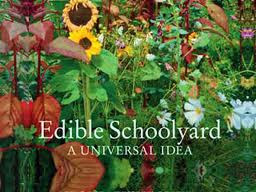
Last week, I had the opportunity during an SCVi staff meeting to view a TED talk by Sir Ken Robinson. I have viewed this talk several times and actually purchased the book last summer in order to really "get" what he was saying. Sir Ken is a huge proponent of creativity and the arts in a well-rounded education. What he says resonates with SCVi's true believers, those of us committed to the vision and willing to brave a few bumps in the road.
One thing he said immediately reminded me of WOMD: American public education, as envisioned by its 19th century proponents, was intended to train workers for an industrialized society. I don't think this is what the little one-room school houses on the prairie had in mind, but I catch his general drift.
Gatto discusses the control of human behavior and the individuals (okay, MEN) responsible for crafting this movement somewhat derisively. From a modern perspective, this attitude makes sense. Recall the response to the book about the Bell Curve of human intellect? Murray and Hernstein claimed that a certain percentage of the population was 'doomed' to fall under the bell curve and that nothing could be done about it. Remember the anger and righteous indignation? Had the authors published this work 75 years earlier, it would not have raised such ire. For better and a lot worse, this is how many Americans thought in those days. Albert Binet and his mind-measuring cousin, Francis Galton, Thorndike, Rockefeller, and others, were products of a different time.
This was before the idea of individualism and the 'frontier' mentality had taken hold, before the common man was held in higher esteem and respected, in general, for his/her contributions to the world. The common man was usually viewed with disdain by those in power. Despite the best intentions of the founding fathers, classism existed then and continues to exist now in America.
Those who fashioned public school in America to train compliant workers honestly thought they were doing a good thing. The schools would serve their own interests, but eventually these people would have jobs. The dignity of human beings born with "less" was probably not considered. After all, how far away were we from the abolition of slavery? Twenty years? Thirty? Fifty?
Gatto mentions that American education was designed "after the Prussian fashion" as a means to achieve important economic and social goals. Those wacky Prussians! Armies, Nationalism in what became Germany, and... oh yeah. The Nazis.
The spirit of individualism thrived, despite attempts to create a "national character." Our new country offered opportunities for anybody willing to work hard to obtain them. Success was just around the corner, providing you were free, white, and a 21 year old male.
I was taught by one of my favorite professors that a democratic education required the finding of one's voice, one's power, one's ability to transcend ignorance and bias. A book by E.D. Hirsch, called "Cultural Literacy," put forth the idea that in order to come together and engage in this national dialogue, one had to possess common knowledge, a core schema of common understanding. He believes that these things must be taught in the schools. Critical theorists disagree, of course, but I find some truth and comfort in knowing that the references I make to my life-long reading and formal education will be understood by most of the people who hear me, read me, and understand me. I am not alone. Newspapers, authors, and journalists also rely on this basic schema.
For instance, if somebody gives me a litany of complaints over a bad day, going on and on, I might be compelled to calmly respond, "Other than that, Mrs. Lincoln, how did you enjoy the play?" OR...."Other than that, Mrs. Kennedy, how did you enjoy the parade?"
The role of our current education system has been bastardized. The "compliance" and "domestication" (which we might euphemistically call "manners" and "civility") has disintegrated into chaos, a lack of vision, and a dumbing down of what should be a salient right in a democracy: An Education. Not schooling, not training, EDUCATION. Scripted curriculum with an overemphasis on testing and accountability has sucked the life out of what should a time of wonder.
I do believe in civility and manners. I also believe they should be a natural by-product from a culture of respect and dignity. Telling anybody to do something "because I said so" reeks of ill-gained authority, but this truism lies along a spectrum. At some point, people should have enough respect for others to listen to what is being asked and then make the decision to follow through because it is the right thing to do. For example, being asked to clean up after yourself, at home, school, in the workplace, or in public, should be second-nature -
because it is the right thing to do, and not because somebody shames you into it or demands that you comply with anti-litter laws.
Being defiant for its own sake is rebellion that lacks potential.









